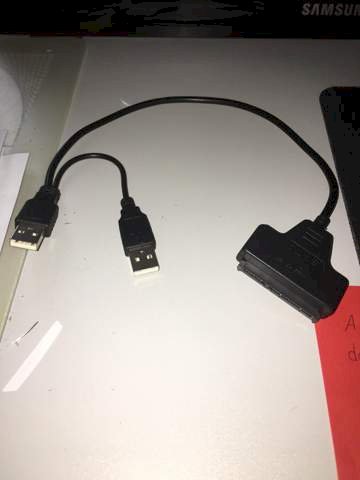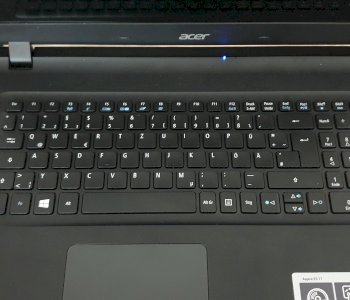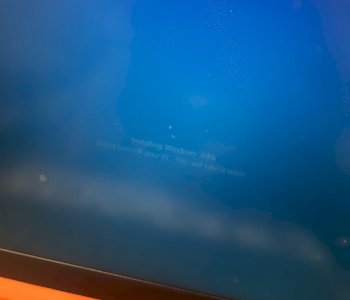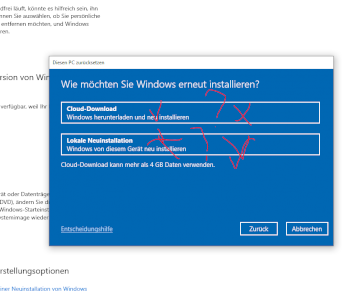How do I connect a 2.5 SATA hard disk to the PC using an adapter?
I bought this adapter:

to connect my old SATA 2.5 "hdd hard drive from my notebook to my PC (Windows 10). However, the hard drive is not shown in Explorer. The hard drive rotates and the PC signals with the typical tone that something has been connected, however the hard drive is not displayed under this PC in Explorer. Do I have to install any drivers beforehand or how else do I access the data on the hard drive?
If Windows is installed on the hard drive, you could try to start the Windows on the hard drive and copy the data you want to a USB stick and then start it again from the computer and get the data from the USB sick
Does it appear in Disk Management?
Win + R -> diskmgmt.msc
Unfortunately, the hard drive comes from a macbook pro
Have you tried a power supply to power the hard drive? The side USB connector is intended for this.
Windows can't read this format
There it is shown
Yes, I already have 😜
I think there was just no drive letter assigned.
Right click → Change drive letter
The only options available to me when I right click are:
Convert to dynamic disk…
It should work with this tool:
https://www.pcwelt.de/...78369.html
There's also the option of the hard drive with the Ubuntu operating system
to copy!
Okay, then that's probably not possible.
Maybe that helps: https://techsviewer.com/how-to-read-and-write-mac-drive-on-windows-pc/
Is not shown even in this program
MacOS high Sierra is on the hard drive
Windows can't read APFS or HFS formatted data carriers. So you need third-party software such as HFS Explorer or TransMac to access the data. The TransMac application is chargeable, but can be fully tested for 14 days free of charge. That should be enough to copy the files you want.
https://www.acutesystems.com/scrtm.htm
http://www.catacombae.org/hfsexplorer/
Alternatively, take a derivative from the Linux world, boot from a "live CD" and then mount the APFS or HFS formatted hard disk. Then simply copy your files there to another data medium. Finally, it may well be that you can't access the data even with the steps outlined above. If so, the hard drive is most likely encrypted.
The hard drive is not displayed even in the APFS for Windows software


